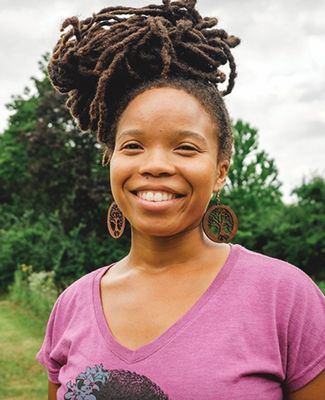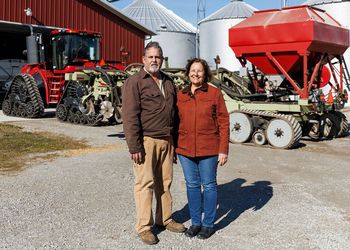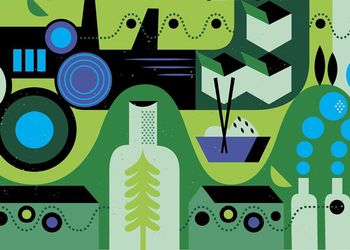Transferring the Power

Transferring the Power
February 7, 2022Ever since Shakara Tyler earned her Ph.D. from the Department of Community Sustainability in 2019, she has been dedicated to helping underserved communities in Detroit find their way to food sovereignty. She’s board president of the Detroit Black Community Food Security Network and a co-founder of the Detroit Black Farmer Land Fund.
“Growing up, I wasn’t the prototypical urban child,” she says. “I was always drawn to the natural environment around me, hugging trees, digging in soil for worms and studying the cycles of the moon.”
Not exactly the standard for a kid from inner-city Philadelphia. Coming to Michigan State helped Tyler’s interests thrive: “I didn’t grow up on a farm or have a garden in my yard. MSU and its curriculum were the ideal place for me to pursue my passion, and it changed my life for the better from so many angles.”
But it was the birth of Tyler’s daughter that inspired her to learn more about the foods we eat. As a new mother, she was driven to give her daughter a more holistic lifestyle, particularly when it comes to nutrition.
“I grew up eating a lot of crappy foods. I wanted better for her,” Tyler explains. “I started to learn how to grow my own food and just wanted to know more about the food system generally. One of my mentors told me that I should go to grad school because they didn’t have answers to my questions and I needed to do research to get those answers. So that’s what I did.”
Today, Tyler is a tireless advocate for urban farming in Detroit and food sovereignty, which she believes, along with land ownership, can be a strategic tool in building intergenerational wealth. For many Black Detroiters, fresh, local produce is scarce. Tyler’s efforts are helping those communities take ownership of their food system.
Hear more from Shakara Tyler in the podcast below:
“Food sovereignty is the self-determining right to have a say in how your food is produced, distributed, sold, consumed and recycled back into the production process,” she says. “It’s really about a transference of power from the corporate food actors that dominate our food system to the people who are mostly the consumers of the food and are generally most affected by food inequities and inequalities.”
On her first visits to Detroit, Tyler was impressed with the agricultural activity around the city. She witnessed communities getting creative to cultivate all available spaces, using what resources they had to produce their own food.
“People growing in their backyards and their front yards and the vacant lots next to their houses and next to their businesses, and even hydroponics and aquaponics in abandoned buildings,” Tyler says. “There’s just so much energy around food production and growing your own food and taking back our voices and our power within the food system.”
The scene in the city is an example of what can happen when neighbors unite to lift each other up. “Urban agriculture in Detroit represents a vibrant movement of people—grassroots organizations and everyday people coming together to build a better reality in the face of so much blight and devastation,” Tyler explains.
There’s camaraderie in every shared goal. But Tyler knows they can only go so far without partnering with the most important resource: earth. “We grow in communion with Mother Nature,” she says.
Author: Russ White, '82, '01



